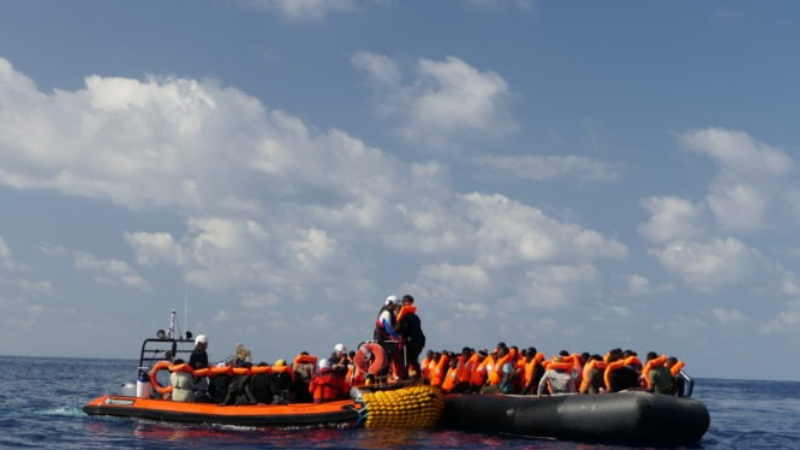The Maltese government has been criticised for “being unresponsive to refugees and migrants in distress” in multiple incidents, “jeopardising the right to life of people at sea,” and being complicit in survivors being sent back to Libya, according to a report by the Council of Europe Commissioner for Human Rights.
The report by Dunja Mijatovic, entitled ‘A distress call for human rights: The widening gap in migrant protection in the Mediterranean’ states: “European countries are failing to protect refugees and migrants trying to reach Europe via the Mediterranean. Backsliding in the protection of the lives and rights of refugees and migrants is worsening and causing thousands of avoidable deaths each year”.
The report explains how there have been repeated allegations that the Maltese authorities are not answering distress calls from refugees, migrants and even NGOs. When they did respond, they did so “very slowly” or just issued instructions to commercial vessels in the vicinity.
“European countries are failing to protect refugees and migrants trying to reach Europe via the Mediterranean. Backsliding in the protection of the lives and rights of refugees and migrants is worsening and causing thousands of avoidable deaths each year,” the Commissioner said.
Most concerning was the issue of the Maltese authorities giving instructions to private vessels to send ‘rescued people back to Libya’. Mijatovic said the government must ensure full accountability in situations where their actions have either directly, or indirectly resulted in this happening.

Dunja Mijatović Human Rights Commissioner at the Council of Europe
The report said that instead of being cautious regarding any relationship with Libya relating to migrants, Malta took further steps to enhance its cooperation.
In May 2020, the government signed a Memorandum of Understanding (MoU) to provide the establishment of so-called “joint coordination centres” in Libya.
There was zero transparency around these centers and the Council of Europe believes could have enabled the Libyan Coast Guard to intercept and return migrants to the country. Furthermore, the MoU fails to provide any safeguards for human rights while at the same time asking for funding from the EU.
The Commissioner said that her call to suspend support for the Libyan Coast Guard impacting interceptions and returns has not been implemented by Council of Europe Member States, including Malta.
“She is still highly concerned about the continued and enhanced co-operation with Libya, particularly by Italy and Malta, despite clear evidence of serious human rights risks,” the report notes.
The report also highlighted how Maltese authorities have adopted a practice of holding rescued refugees and migrants outside territorial waters on private vessels not equipped to host people for a long period. The Commissioner said this is a tactic that could be used to prevent asylum claims and deprives people of access to legal assistance as well as their deprivation of liberty.
While the practice was ended in June 2020, the Maltese government subsequently announced that it was looking to accommodate refugees and migrants on vessels in the future, the report said.
Attention was also drawn to legal and administrative harassment of NGOs as well as politicians insinuating that these NGOs are “a pull” for migrants. The Council of Europe called for an end to the criminalisation of those who defend human rights.
The Commissioner strongly condemned the way in which Member States “through actions and omissions” are further increasing the risk of returns to Libya where migrants and refugees face “serious human rights violations”. She criticised their failure to take decisive measures to prevent it.
These pushback combined with “outright denials” of allegations made in reports by reputable human rights organisations, including their dismissal as “fake news” are not serious responses from responsible governments that value the rule of law, the report said.
She called on Member States to ensure they do not contribute to human rights violations by facilitating returns to Libya. Any such cases must be promptly investigated.
Furthermore, any “disembarkation” onto other vessels must only be used as a temporary measure when no other land-based alternative is available.
Anyone believed to have been tortured or subjected to inhuman treatment must be “promptly identified” and provided with all the necessary medical support.
“It is high time for European countries to put an end to this shameful tragedy and to adopt human rights compliant migration policies. Member States must no longer delay taking action to save lives. It is a matter of life or death – and of the credibility of European countries’ commitment to human rights,” the Commissioner concluded.













If we were jeopardizing the right to life of an embryo, many Maltese would be up in arms but ‘people at sea’ not so much.